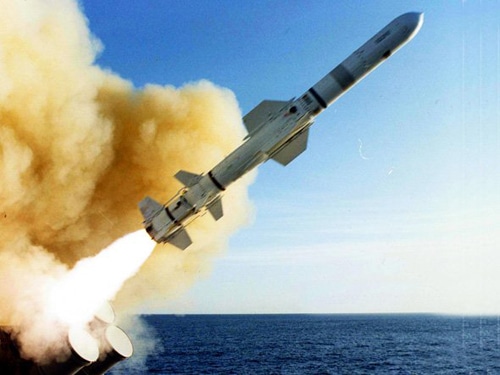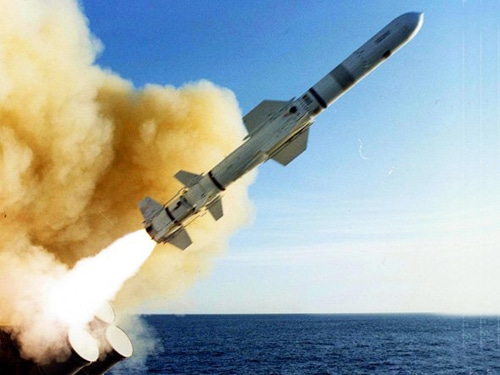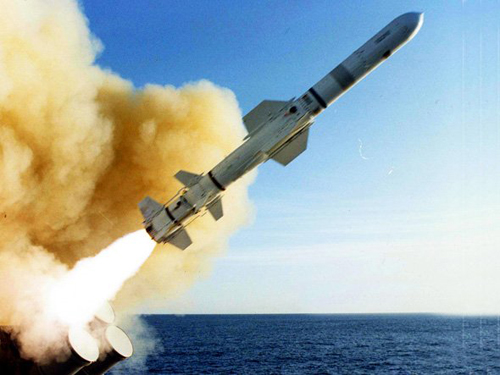After experiencing a lot of hype after the missile strike, we have reached a point where the US seems to have nothing to offer to the people of Syria except support for the powers that have played a central role in fomenting the crisis in the first place. While the US president’s response to the so-called chemical attack did boost his domestic ratings and introduced a sense of conflict with Russia, he is yet to offer a practical strategy to wipe out real terrorist groups operating in Syria.
By now, we all know that Trump’s one strike, although initially over-praised as the beginning of a new era of US military engagement in the Middle East, was a lonely act and that such lonely acts achieve nothing but only escalate tension and allow the ruling elites to maintain a semblance of seriousness and firm resolve to fight the “evil” and restore the “good.” In geo-political terms, however, his resolve implies an absence of both a clear-cut strategy and refined political objectives.
No strategy!
Even in the words of former defense secretary William Cohen, “One strike doesn’t make a strategy”, and that the “US policy on Syria remains unclear”, arguing further that the US “strike does leave one with the impression that foreign policy in the Trump administration is not being made by carefully evaluating a situation, assessing various options, weighing costs and benefits, and choosing a path. Instead, it is a collection of reflexes responding instinctively to the crisis at hand.”
A continued absence of strategy indicates that the US, even after launching 59 missiles in Syria, has failed to carve out some space for its own geo-political manoeuvers. Not only does Russia remain in the driving seat, but the US remains severely restricted by the options it can resort to. Such a situation owes its existence not simply to Russian presence, although it certainly is an important factor, but mainly to the self-contradictory objectives the US is following in Syria i.e., the imperative of defeating ISIS and removal of Assad. Could it get any worse for establishment of peace?
Top US officials have so far failed to reconcile this contradiction, and it is this very absence of coherence that has eroded whatever impact the strike could possibly have left. While Nikki Haley, the US ambassador to the United Nations, suggested that Assad’s ouster is now a priority, Secretary of State Rex Tillerson continues to insist that defeating the ISIS still tops America’s agenda.
This contradiction is being compounded by the fact that the Trump administration has so far been unable to break out of the Obama administration’s long aversion to another large scale military engagement in the Middle East. This is also evident from the way the US military has started to prefer using big-bombs instead of relying on boots on the ground in Afghanistan (read: the US drops MOAB in Afghanistan). The Syria missile strike is itself a clear indication of this very fact.
No ‘proxy boots’ on the ground too?
The resort to a missile strike is also indicative of yet another fact that the US no longer has an advantage in Syria in terms of “proxy groups” it has spent years in training and funding. Today the so-called “Syrian opposition” is divisive and has already lost a lot of territory to the Syrian army in the wake of the latter’s deep pushes inside the “rebel held” territory.
Therefore, the widely held belief in the West that the Trump administration might be able to bring Russia to the bargaining table is a mistaken one; for, the US doesn’t seem to have any bargaining chip vis-à-vis Russia in Syria. For one thing, the US does not have assets on the ground, a drawback that continues to impede, for instance, its long-in-the-making plan to liberate Raqqa.
While the Syrian government has stated its willingness to co-operate even with the West as far as the question of liberation of Raqqa is concerned, this is by far not the biggest issue the US is facing with regard to the up-coming operation.
Consider this: while co-operation with Assad on Raqqa seems out of the question for the US and its Arab allies, the US’ post liberation programme has serious flaws that can prevent its plan from going smoothly. For instance, while the US is looking for placing “rebel forces” in control of Raqqa after the operation, a big part of these forces consists of Kurds, who are far from on good terms with Turkey, Syria’s northern neighbour. Turkey will probably not be happy to see a Kurdish-majority group gain governing power over a region near its border, as the Turkish government has long considered Syrian Kurdish militias, including those backed by the US, to be terrorist groups. Turkey has repeatedly bombed US backed Syrian Kurds for this very reason.
Will, therefore, the US’ “Raqqa liberation” plan end up as smoke in the air? The answer to that again depends upon how well and how soon the US can remove this contradiction—something unlikely to happen, given that Turkey’s Erdogan is highly unlikely to reduce tension with Kurds and accommodate them politically within Turkey’s new political system that is least accommodative for ethnic minorities.
What’s Russia going to do?
As said earlier, the US does not have a bargaining chip vis-à-vis Russia in Syria. Secondly, it is not Russia alone that is involved in Syria. Russia shares the burden with Iran, and it is doubtful that it would be willing to part ways with Iran in Syria. And there is equally no chance of Russia softening its stance on Syria, not after the US strike. In fact, Russia is likely to increase the extent of military and diplomatic support it has so far been providing to Syria.
The reason for this is simple: Russia’s Vladimir Putin has clearly stated that Russia has information that more “fake chemical attacks” are being planned by the rebel groups as a means to escalate the war and drag the US further into the conflict.
Who benefits from this escalation is not difficult to understand. It is the same powers and the same actors who felt overjoyed when the news of US missile strike reached their desk. More than a coincidence, it is the “Sunni Arab” states who have been yearning for greater US involvement and the drama of chemical attacks has turned out to be a perfect excuse for them. Russia, sensing this situation, is unlikely to back out; for, the drama of “chemical attacks” poses a direct question mark on its own credibility as a guarantor of the 2013 chemical weapons deal according to which all of Syria’s chemical weapons were destroyed under the supervision the UNO.
Therefore, behind a sinister campaign being run in the West about Russia being responsible for the attack is the policy of defaming Russia globally and an attempt at removing it from the driving seat in Syria, a situation that has seen a gradual reconquista by the Syrian regime, with Russian and Iranian support, of the parts of Syria held by different “opposition groups.”
Reprinted with permission from New Eastern Outlook.



